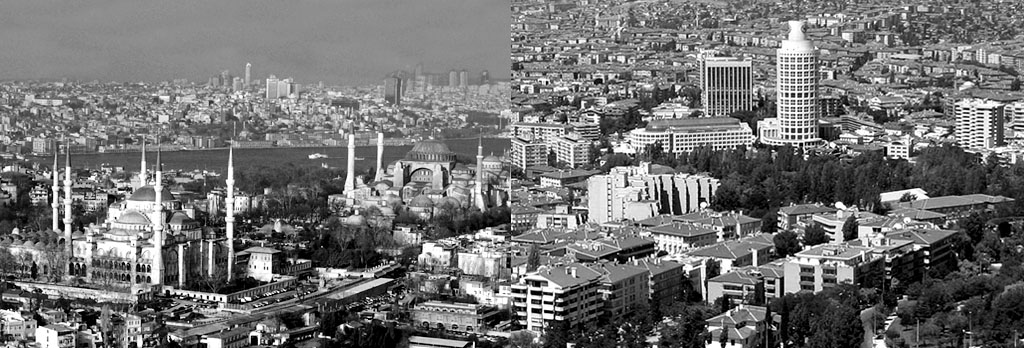16-10-12 // EMERGING GEOGRAPHIES – INTERVIEW WITH SASKIA SASSEN

Geopolitical Urban Vector: Istanbul, Ankara
Bernd Upmeyer interviewed Saskia Sassen on behalf of MONU. Saskia Sassen is the Robert S. Lynd Professor of Sociology and Co-Chair of The Committee on Global Thought, Columbia University. Her recent books are Territory, Authority, Rights: From Medieval to Global Assemblages, A Sociology of Globalization, and the 4th fully updated edition of Cities in a World Economy. Among older books is The Global City. Her books are translated into over 20 languages. She is the recipient of various diverse awards and mentions, ranging from multiple doctor honoris causa degrees to named lectures and being selected as one of the 100 Top Global Thinkers of 2011 by Foreign Policy Magazine.
Next Eleven Countries
Bernd Upmeyer: The so-called “Next Eleven” countries that include Bangladesh, Egypt, Indonesia, Iran, Mexico, Nigeria, Pakistan, the Philippines, Turkey, South Korea, and Vietnam have been identified as becoming, along with the BRICs, among the world’s largest economies in the 21st century. How do you judge that?
Saskia Sassen: Let me crawl slowly towards an answer to your question. I do not think in these terms. The only exceptions in the “next 11” that I would argue are promising are Turkey and South Korea, who are already de facto part of the BRICS. Then, I would take Russia out of the BRICS: Russia has the poor and billionaires, no millionaires – it is a kleptocracy. The middle classes are getting poorer too.
BU: The criteria that were used to classify the Next Eleven countries were macroeconomic stability, political maturity, openness of trade and investment policies, and the quality of education. Do those criteria make sense to you?
SS: First, “national economies”— as in the 11 countries— are increasingly problematic categories. I see rather emergent geographies of centrality that connect prosperous areas of countries, including major and global cities, across the world. These new geographies of centrality cut across the old North-South divide. Similarly I see emergent geographies of marginality that also cut across the old N-S divide. There is growing, often acute poverty in highly developed countries, including new forms of poverty, such as the impoverished middle classes which fueled the Indignados and Occupy and Tahrir movements. And there is increasing magnitude of wealth in the Global South – South Africa, Nigeria, Kazakhstan, Mexico, India…and on and on…
…the complete interview was published in MONU #17 on the topic of Next Urbanism on October 16, 2012.
Title: Emerging Geographies – From Environment to Terrorism
Project: Interview with Saskia Sassen
Date: October 2012
Type: Commissioned interview
Topic: Next Urbanism
Organizer: MONU
Status: Published
Publications: MONU #17, P.9-16
Interviewer: Bernd Upmeyer